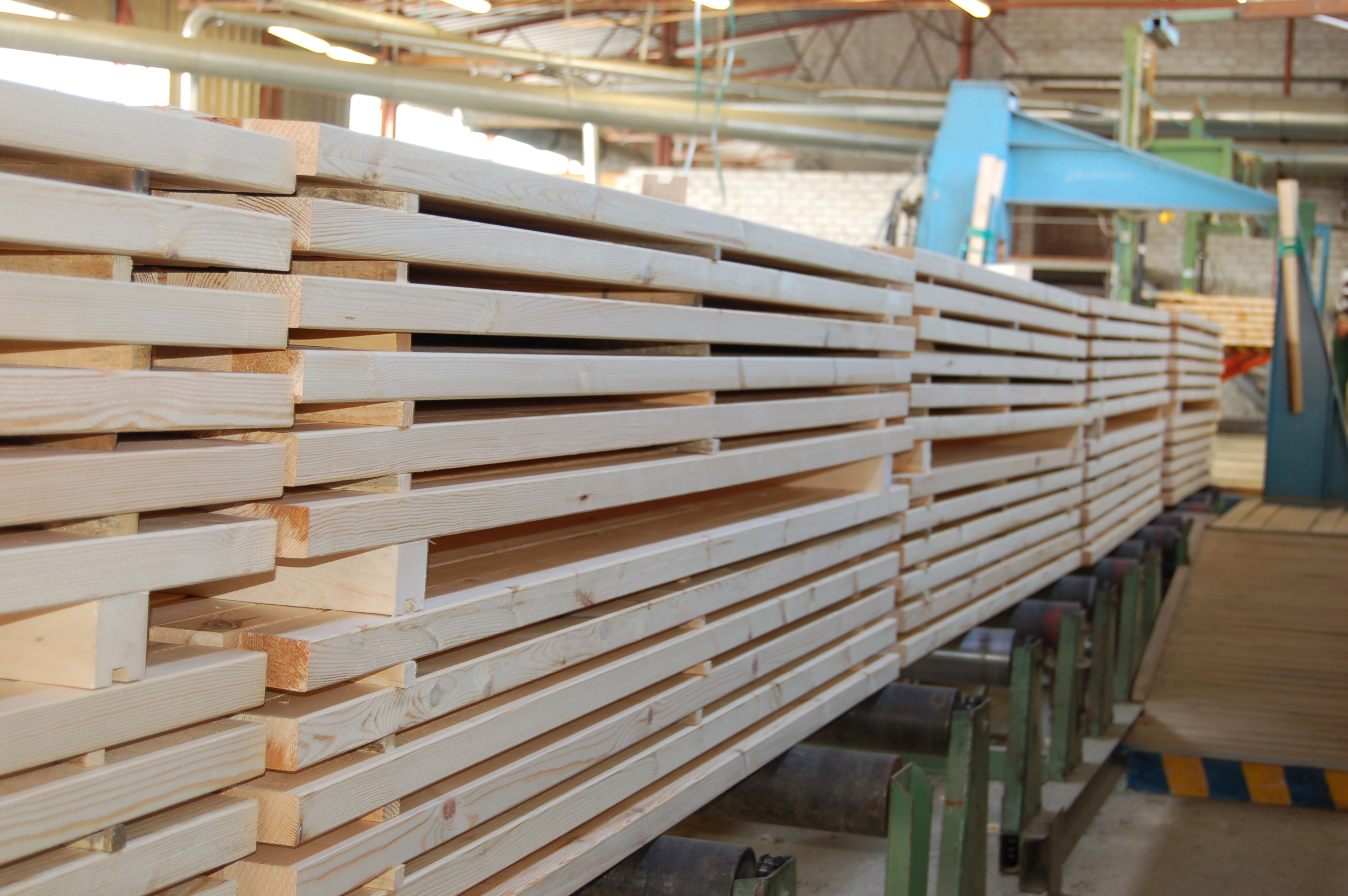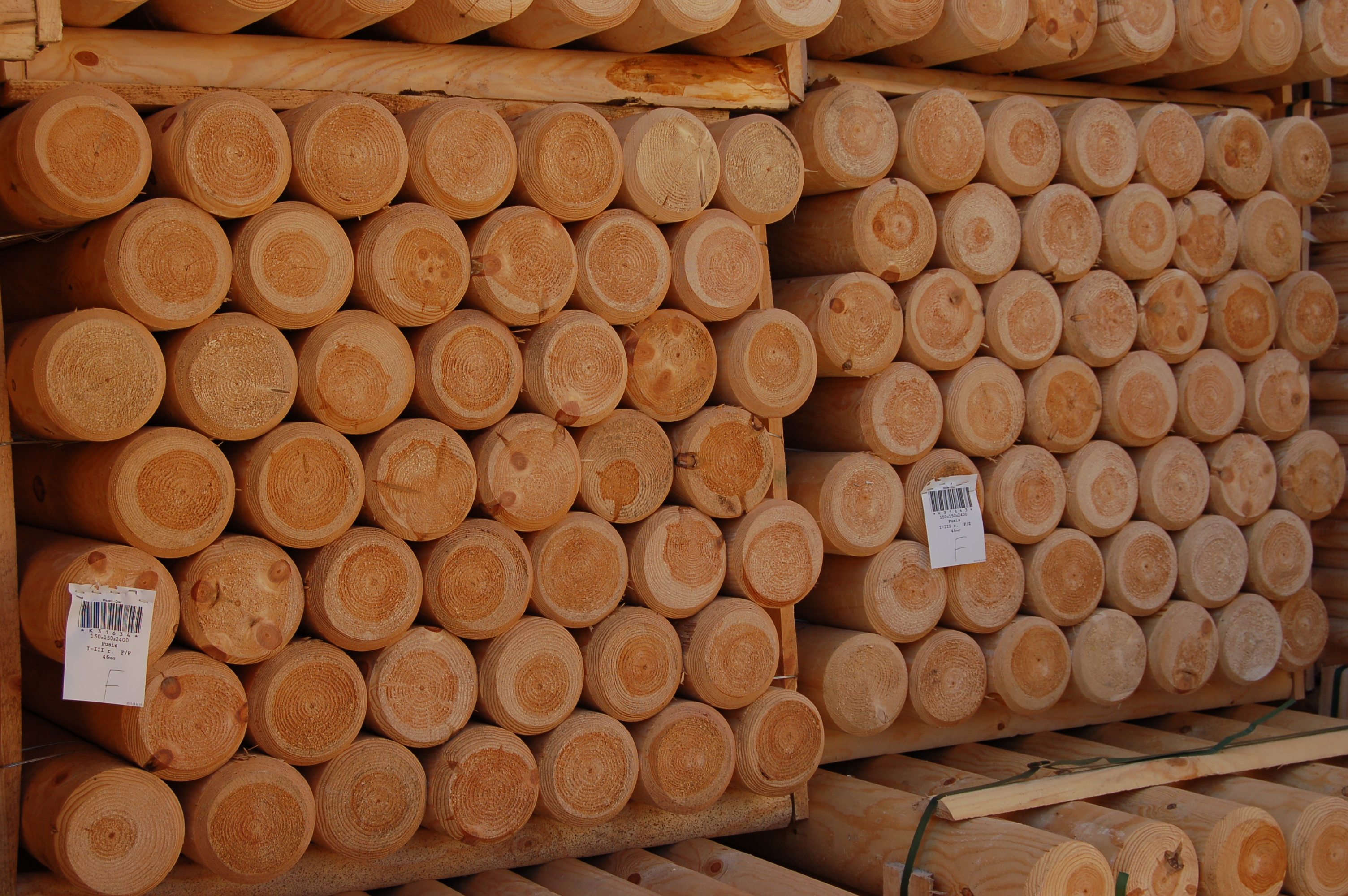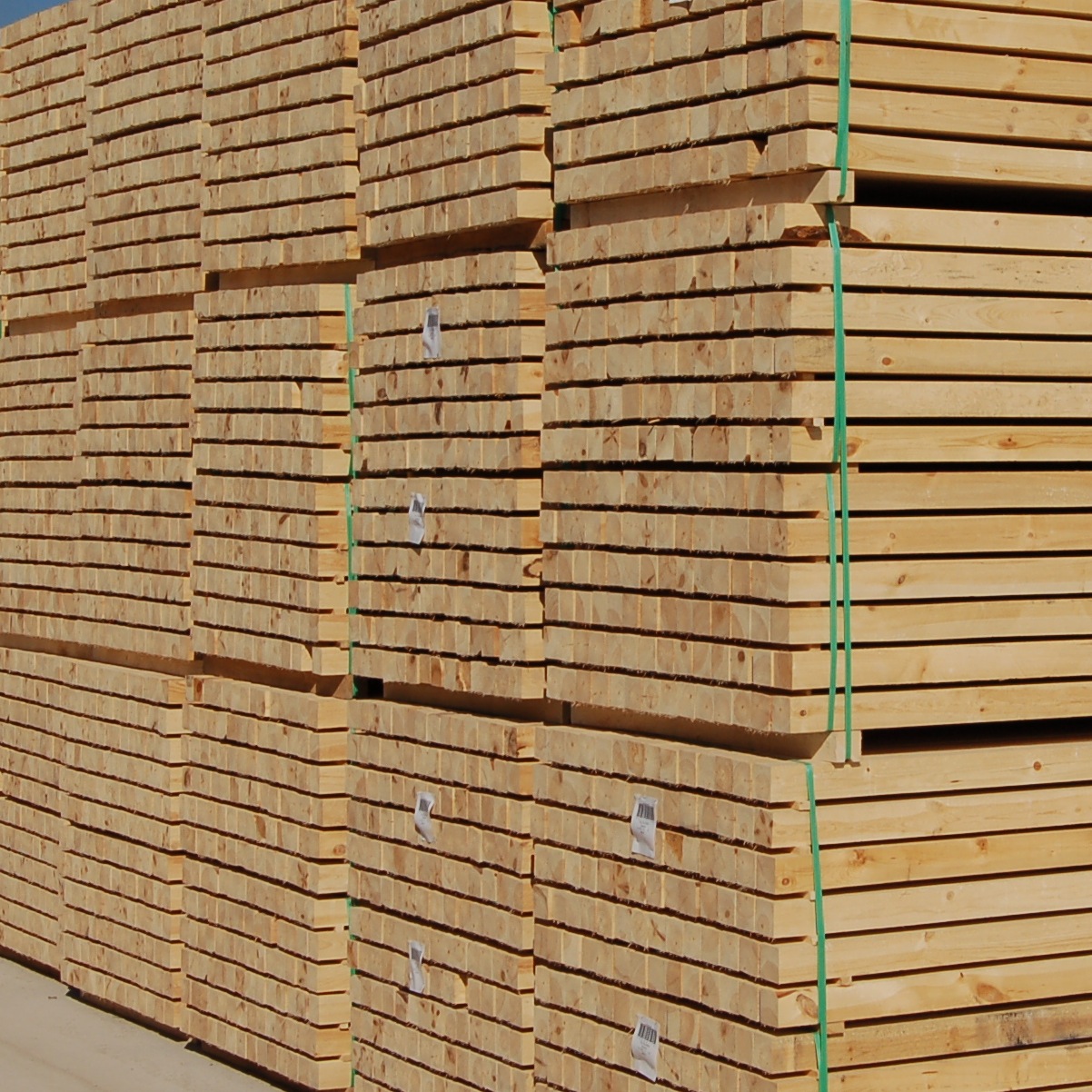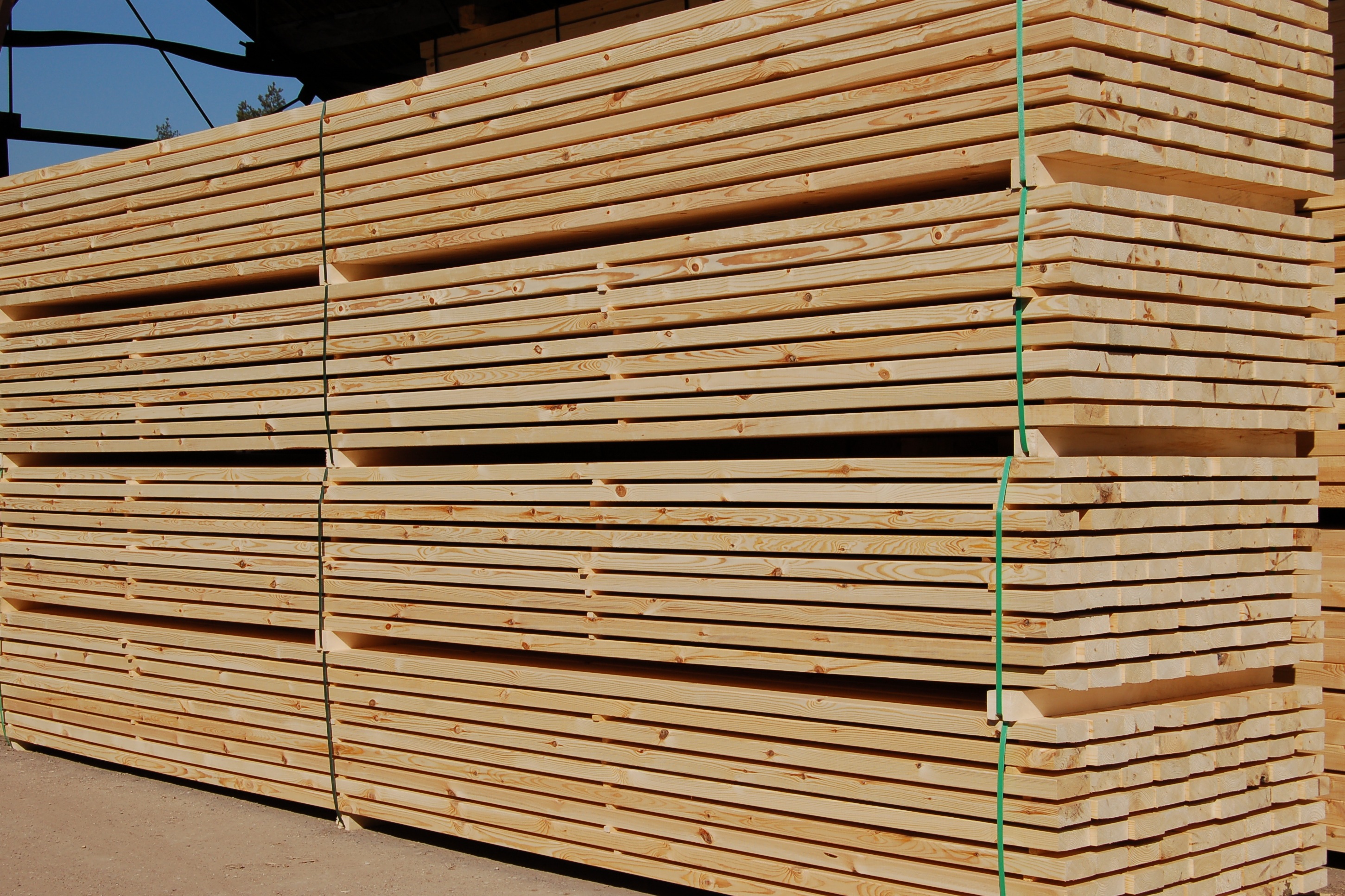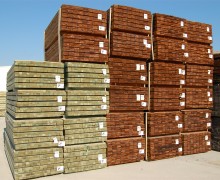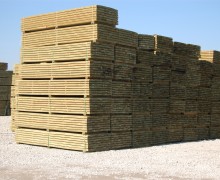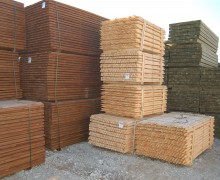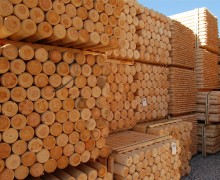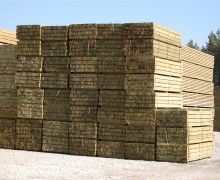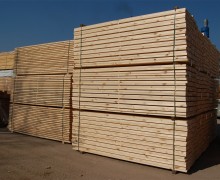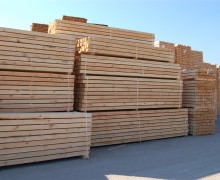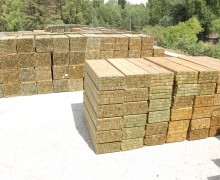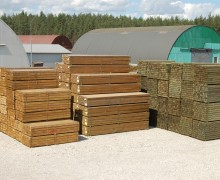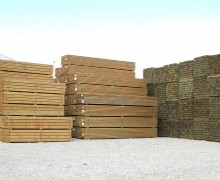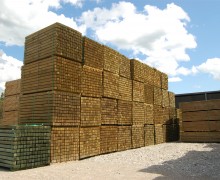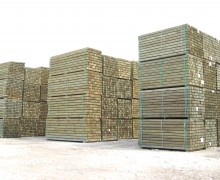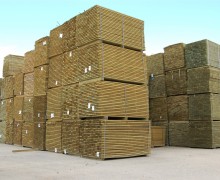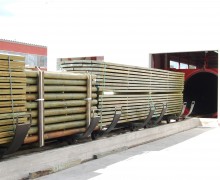Softwood timber is very resistant to decay, has a uniform colour and texture, is easily cut, and can be planed and glued. Its intercellular cavities can be filled with resin, and it is preferable as a construction material. The most common softwoods are spruce, pine and larch.
- Pine wood is not only lightweight but is also very resistant to decay. It dries well and is easily treated. It is used for manufacturing railway sleepers, communication line poles, construction joinery, wooden pallets and furniture. The main disadvantage of pine wood is its tendency to turn blue.
- Spruce wood’s resistance is slightly less than that of the pine timber; however, it is lighter in colour (almost white), has a small fibre structure, maintains its natural colour longer, has less resin and has better dying and flexibility characteristics. Spruce wood is suitable for the manufacturing of various structures, furniture and musical instruments. The main disadvantage of spruce timber is its increased number of knots owing to many branches.
- Larch wood is very resistant to decay and has fewer knots. It is suitable for structures which are constantly affected by moisture; however, when being dried it is prone to cracking.
Due to the application of modern technologies and timber treatment, we can offer planed and impregnated wood products (e. g. boards for construction, façades, terraces and floor) which are made from all of these softwood timbers.
Also, we can offer poles (with bark or stripped), as well as planks for fences and columns. All of these are manufactured in our wood processing company whose head office is in Jašiūnai, Šalčininkai District.
The timber is all deeply impregnated with the chemical Tanalith E-7 (3492) and our impregnation capacity is 10.000 m3 a month.
The majority of our softwood timber production is exported.




